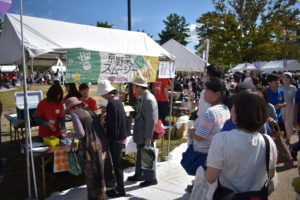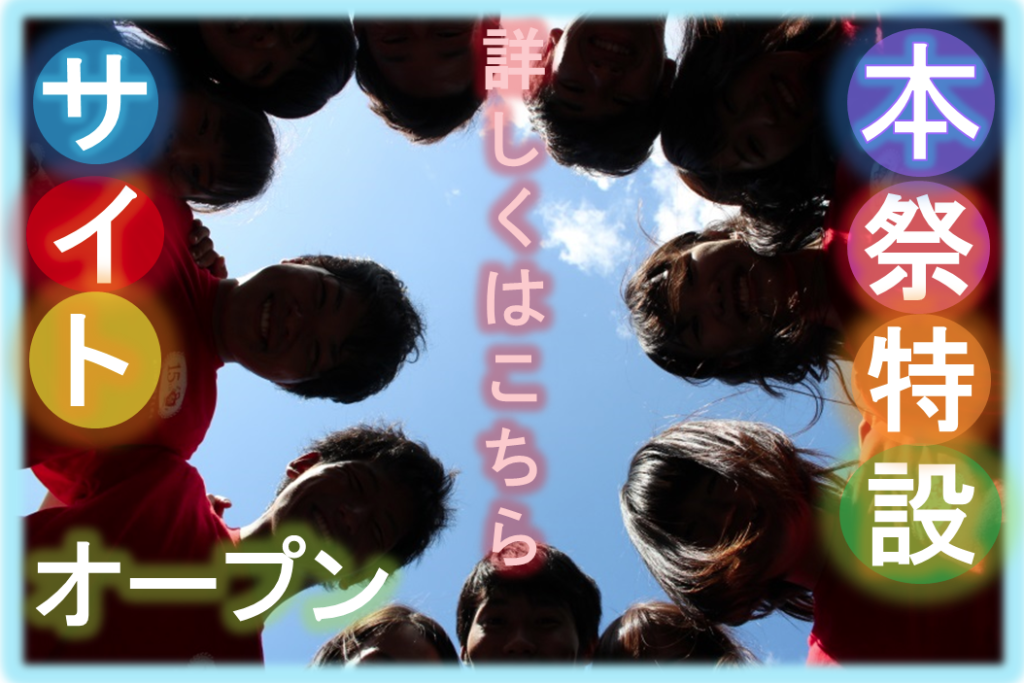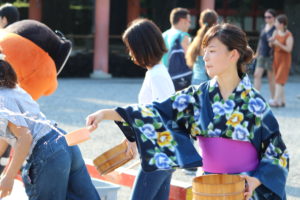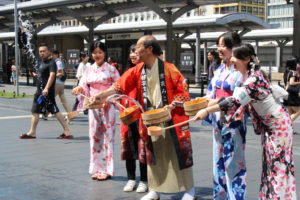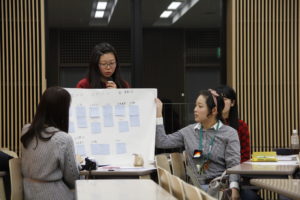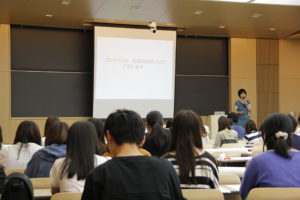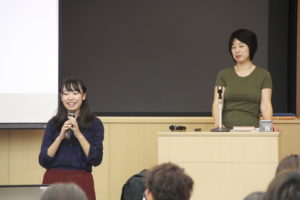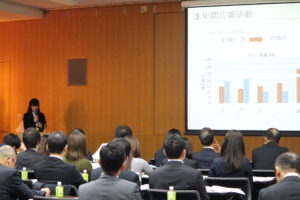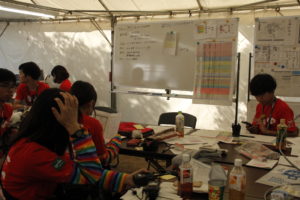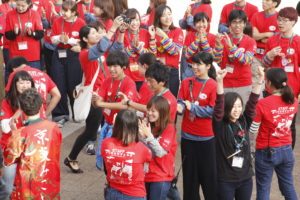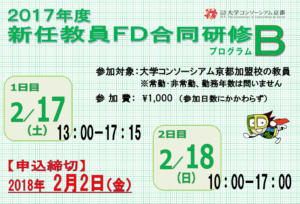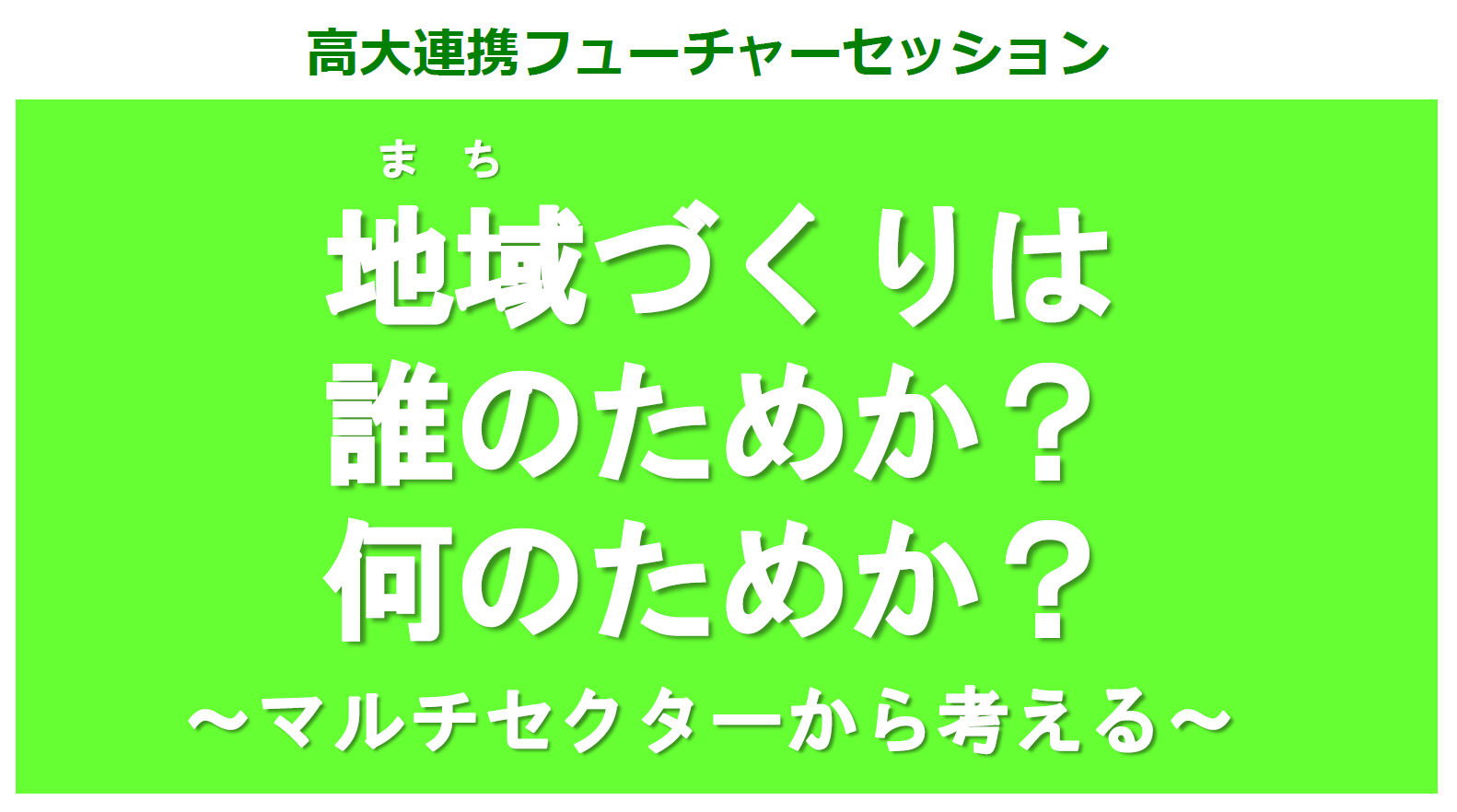The University Consortium Kyoto will hold the “
Kansai Disability Student Support Officer Roundtable” (KSSK) as follows, with the aim of exchanging personnel involved in disability support services at universities in the Kansai region.
This is the 10th anniversary of the founding of KSSK, and the 20th anniversary of the event, the topic will be changed to a commemorative lecture, and Professor Ishida (Tsukuba University of Technology), the former chair of the committee who was involved in the founding of KSSK, will be invited as a lecturer to speak on the theme of “The Past 10 Years and the Future 10 Years of Regional Cooperation Networks.”
In addition, the subcommittees will be divided into three themes: “Lectures,” “Small Universities,” and “Case Studies,” and will exchange opinions on how to support students with disabilities.
If you are a faculty member or staff member who is involved in supporting students with disabilities at a university or junior college in the Kansai area, or who is interested in supporting students with disabilities, please join us in creating a network of people in charge.
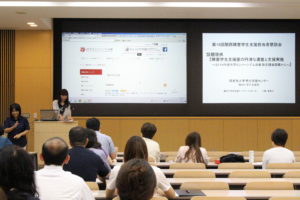
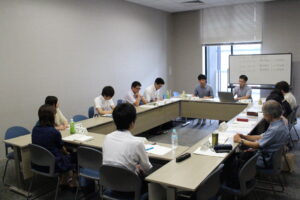
Outline of the 20th Kansai Roundtable Meeting of Persons with Disabilities (KSSK)
◆Date & Time: Thursday, February 22, 2018 13:00 (Reception 12:30) ~ 17:15
Information Exchange Meeting/17:30~19:00
◆Venue: Campus Plaza Kyoto 4F Lecture Room 4 (Access)
(〒600-8216 939 Higashi-Shiokoji-cho, Nishitoin-dori, Shimogyo-ku, Kyoto)
◆Target: Involved in supporting students with disabilities at universities and junior colleges in the Kansai area, or supporting students with disabilities
Interested faculty and staff
* For those who are not in the target area, if there
is a vacancy in the capacity after the end of the application period for the 20th time. Please contact the secretariat to participate (added on January 16, 2018)
◆ Capacity: 70 people (first-come, first-served basis)
◆ Participation fee: Free (A separate participation fee is required for the information exchange meeting)
◆Contents: (Download the outline of the event as a PDF)
|
time
|
Contents
|
|
12:30
|
Reception starts
|
|
13:00
|
Opening Remarks
|
|
13:10
|
Commemorative Lecture “The Past 10 Years and the Future Decade of Regional Cooperation Networks”
≪ Lecturer≫
Hisayuki Ishida (Professor, Tsukuba University of Technology, Chairperson of the 1st~15th KSSK)
≪ Contents≫
KSSK was established in 2008 with the basic philosophy of “a practitioner’s perspective,” in which practitioners involved in supporting students with disabilities “kneel down” and frankly discuss the successes and failures of support. Subsequently, the importance of supporting students with disabilities increased due to the enforcement of the law, and KSSK came to the attention of a good example of a regional network. In the commemorative lecture, Dr. Ishida, who was involved in the founding of the network, will talk about his thoughts at the time and the circumstances that led to its launch, as well as the expected role of the regional network in the future.
|
|
14:10
|
Rest & Movement
|
|
14:20
|
Breakout Sessions
|
|
A Lecture (Capacity: 25 people per theme)
|
|
(1)~(2) We will hold a dialogue according to each theme. Participants will deepen their understanding of the current situation and issues of support for students with disabilities through dialogues conducted by speakers. Questions and questions about the theme will be answered in the Q&A session.
(1) From the standpoint of faculty and staff with disabilities
We will invite Mr. Toshihiro Okuyama (Center for Advanced Science and Technology, The University of Tokyo) as a guest to have a frank conversation about the relationship between creating and improving a support system with students with disabilities, based on his experience as a person with a disability who has been working on support that emphasizes the empowerment of students with disabilities.
(2) Roundtable discussion with people involved in supporting students with disabilities
Three people in charge of coordinating dispatch and connecting students with faculty and staff in the field of support for students with disabilities will talk based on their experiences at each university. At the time of application, please tell us what you are having trouble with your own study and what you would like to ask other universities based on the issues.
|
|
B Small university (capacity: 10 students) * Since the capacity has been filled, there will be a waiting list after that.
|
|
This is a breakout session for universities with less than 3,000 students. We will mainly share information and exchange opinions on the actual situation and issues of support for small universities.
|
|
C Case study (capacity: 10 people) * Since the capacity has been filled, there will be a waiting list after that.
|
|
This subcommittee examines case studies on the appropriateness and fairness of support for students with disabilities. Coordinators are expected to be the main participants, but administrative staff and faculty members are also welcome.
|
|
16:40
|
Rest & Movement
|
|
16:50
|
Summary |
|
17:15
|
Closing Remarks |
|
17:30
|
Information exchange meeting (ends at 19:00) |
◆ Application caution: Please be sure to check the following.
< Participation in the subcommittee>
Please select one of the subcommittees A~C and write the alphabet and theme in the application email.
Note 1: If you are applying for Subcommittee A, please fill in the following information.
(1) Select the desired content and enter the number. Example: Lecture A (1)
(2) In order to reflect the topics to be covered in the subcommittee, please send us your problems and issues at your university, and the topics you would like us to cover.
Example: I am worried that I will not be able to convince others that it is difficult to respond to the needs of students with disabilities in terms of budget.
Note 2: If you are applying for Subcommittee B, please include the number of students at your university and whether or not there is a support system (if so, the year of inauguration, and the number of members).
Note 3: If the capacity is exceeded, priority will be given to those who are first served, so please note that you may not be able to participate in the subcommittee of your choice. In that case, the secretariat will contact you.
information exchange meeting>
If you would like to participate in the information exchange meeting after the plenary session and subcommittees, please let us know when you apply for participation.
[Venue] La Café Kenya (Campus Plaza Kyoto 1F)
[Participation fee] 2,500 yen
* Please bring your own change on the day of the event. We will prepare a receipt with the name of the university. If you wish to include something other than the name of the university, please contact the secretariat.
◆ How to apply: Please send an e-mail with the title “Application for participation in the 20th KSSK”, fill in the following items, and send it to the secretariat [ kssk-jimukyoku-ml ■ consortium.or.jp ] (* Please replace the ■ part with @).
* The personal information you receive will be used only for purposes related to the operation of KSSK. In addition, the subcommittee management
Therefore, please note that the members of the board of directors may contact you separately.
* After confirming the application email, we will reply to the reception email (participation certificate). If you do not receive a reply after 5 days, please be sure to contact the secretariat.
Please contact us. Please note that replies will be delayed during holidays and office breaks.
* Please print out the reception email (participation certificate), bring it with you, and present it at the reception on the day of the event.
**********************************
(1) Participant’s name (please send one email per person)
(2) Name of university
(3) Department/Position
(4) Desired subcommittee (in the case of B or D, please include the required information)
(5) Assignments, opinions, etc. of your own university (*used as materials for subcommittees)
(6) Desire to participate in information exchange meetings
(7) Whether or not there is consideration for disabilities in participation.
(8) Other necessary communications
************************************
Deadline extended
◆ Application period: December 1, 2017 (Friday) ~ February 16, 2018 (Friday) (Closed as soon as capacity is reached)
Organizer: University Consortium Kyoto
Co-organizer: Higher Education Accessibility Platform
【Planning and Management】Executive Committee of the Kansai Disability Student Support Officer Roundtable
|
【Secretariat (Inquiries and Applications)】
University Consortium Kyoto Student Exchange Division Person in charge: Totsukaya Fujii
Tuesday~Saturday 9:00~17:00
TEL:075-353-9189 FAX:075-353-9101
E-mail:kssk-jimukyoku-ml■consortium.or.jp
(*Please change the ■ part to @ and send it)
|






















